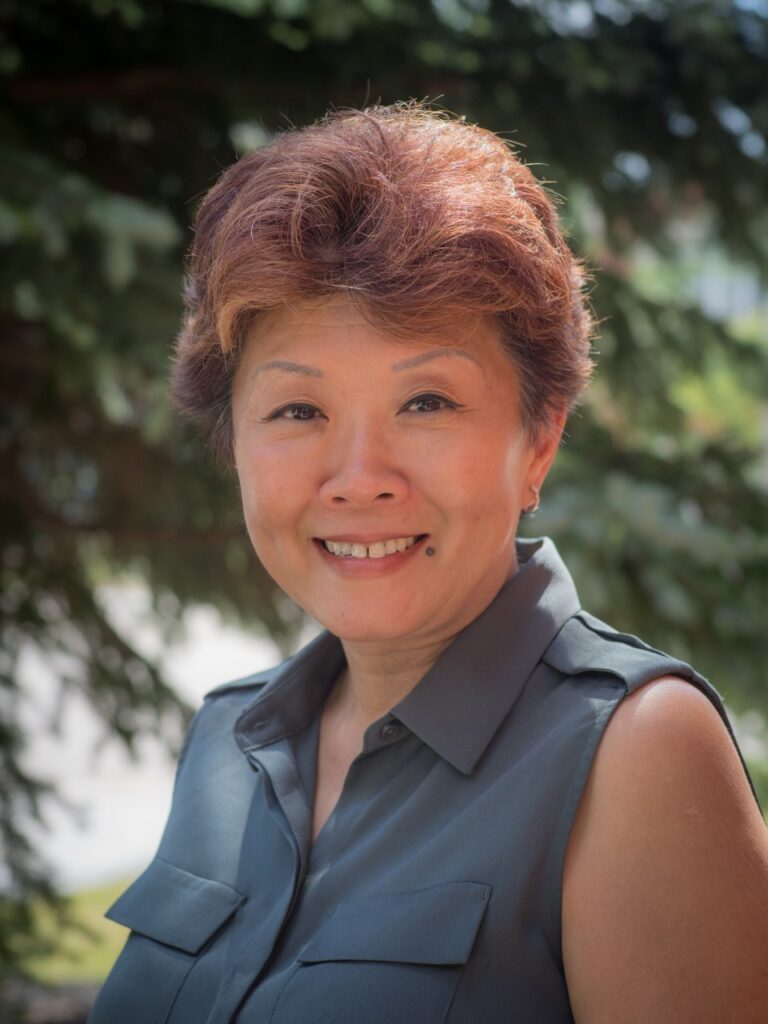How Terry Cheng helps Chinese women navigate cancer recovery
Categories: Alumni + Friends, Faculty, Research Terry Cheng (PhD 2010) knows she’s generalizing when she says Chinese women don’t tend to share their emotions, even when navigating the emotional challenges of cancer recovery.
Terry Cheng (PhD 2010) knows she’s generalizing when she says Chinese women don’t tend to share their emotions, even when navigating the emotional challenges of cancer recovery.
But she started seeing it so often in her role as an oncology social worker at the University Health Network’s Princess Margaret Cancer Centre, she was inspired to help open the conversation.
“Because I’m a Chinese social worker, I would get a lot of referrals to see Chinese woman with breast cancer, mostly because of language issues,” she says. “I started to notice they had tremendous unmet needs – many were related to language barriers, but there were also specific cultural needs.”
Chinese women were often struggling in silence while navigating the various stages of breast cancer, Cheng realized, with the recovery period proving especially challenging.
“We tend to internalize our emotions and try to manage on our own – wanting to be self-sufficient and not to become a burden to our family,” says Cheng. “It can be very lonely, very isolating.”
As part of her PhD thesis at University of Toronto’s Factor-Inwentash Faculty of Social Work (FIFSW), Cheng interviewed 24 Chinese women who had recovered from breast cancer, exploring their lived experiences.
“I was the first person these women had actually spoken to about their experiences,” she says. “They may have shared a little bit here and here with family or a friend, but I was the first person they really opened up to.”
By keeping their problems hidden, many of these women felt isolated and suffered from depression and anxiety. In addition to language barriers and a lack of culturally relevant support materials, their efforts to avoid being a burden for their loved ones often had mental health repercussions.
A further challenge for these women is that the recovery period itself can be an especially challenging time for cancer survivors, as Cheng’s earlier research had uncovered.
“A lot of support is offered for people in initial diagnosis and treatment, but there’s less guidance to help facilitate that difficult post-treatment phase,” says Cheng, who along with colleagues at Princess Margaret Cancer Centre has developed various psychoeducation resources to help women make this transition.
Recognizing that Chinese women were facing multiple gaps, she set out to help.
Combining her expertise in psychoeducation for cancer recovery and the insights explored in her PhD thesis, Cheng launched a website called Breast Cancer Recovery for Chinese Women in 2020. Featuring emotional and physical well-being resources, self-reflection exercises, self-assessment questionnaires, financial support guidance, emotional literacy tools and more, the website aims to be a culturally and linguistically relevant guide, supporting Chinese women along their cancer recovery journey.
A highlight of the website is a short video featuring two women sharing their experiences with breast cancer over dim sum. Filmed in Mandarin with English subtitles, the video combines stories from the women Cheng interviewed during her PhD thesis, while demonstrating the benefit of opening up to a friend.
“I was debating whether or not to tell you,” says Tinzin in the video to her younger friend Winnie, who had just shared her recent cancer experience. After listening to her friend with empathy, Tinzin decides to reveal her own story.
“I understand what you went through because I too had breast cancer five years ago,” she says.
The two women connect over their shared experiences: not wanting anyone to feel sorry for them, feeling guilty about being sad and depressed, and frustration with relatives who believe they’ll bring bad luck to the family. They talk about financial difficulties, strained relationships, counselling support and more.
“The idea behind the video is role modelling. If you see someone sharing their experience, you’re better able to share your own,” says Cheng, who created the website as part of her ongoing clinical research as an assistant professor (status only) at FIFSW. “The website aims to normalize these difficult emotions, help build coping strategies and most importantly, let Chinese women know they are not alone.”
Cheng is currently examining the effectiveness of the website through a pilot randomized control study, while gathering data from women on what additional supports they would find helpful.
She hopes the initiative will soon help many more Chinese women recovering from cancer feel more supported and less alone.
By Carolyn Morris
Related:
- 2023 Asian Heritage Month: Resources & Events
- New report on anti-Asian racism during the COVID-19 pandemic highlights the experiences of members of Toronto’s Chinese Canadian community
- Newly funded research by Samantha Anthony aims to promote equitable access to living donor kidney transplantation for Chinese Canadians